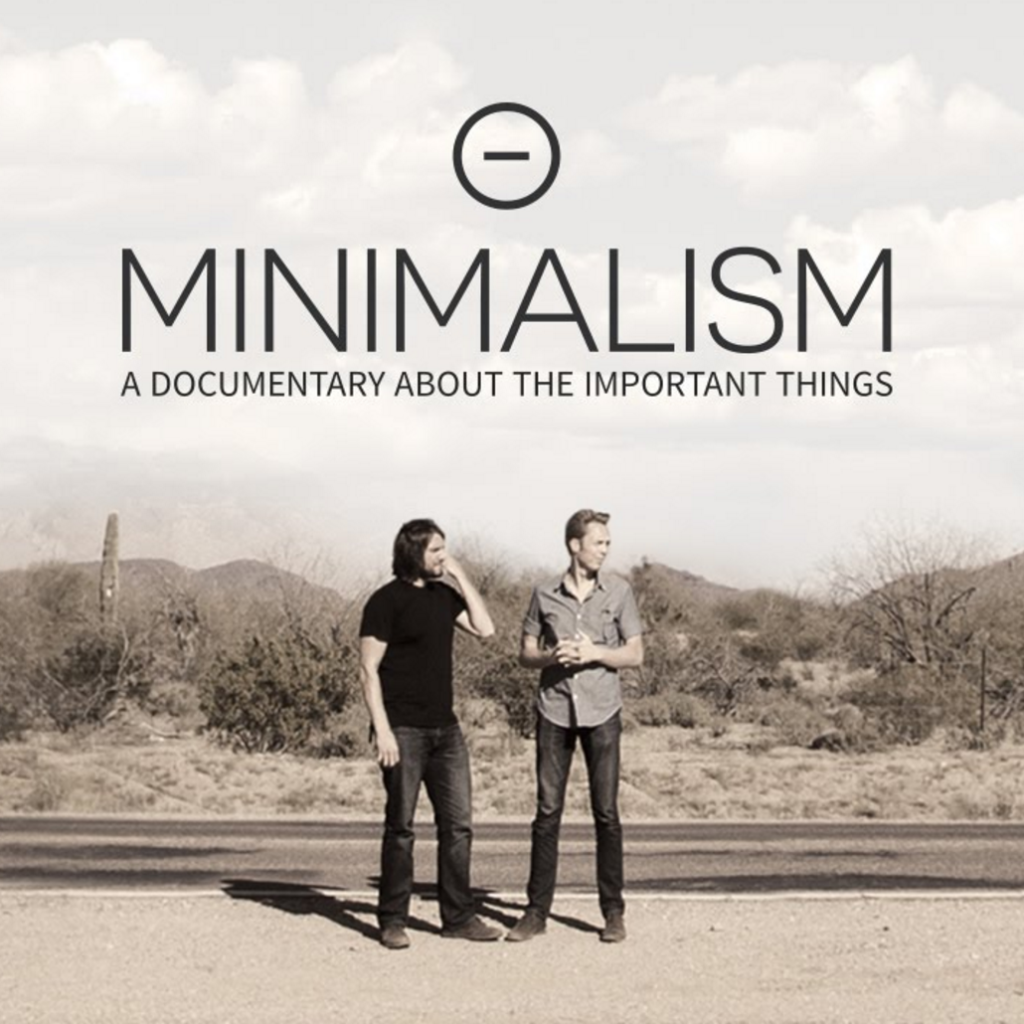When a long day of organizing is done, the crew of A Fresh Space likes to spend some down time together. In May, we had the opportunity to attend a screening of Minimalism: A Documentary About the Important Things. The movie came onto our radar when Liz Jenkins was chair of the 2015 NAPO conference in Los Angeles. Joshua Fields Millburn and Ryan Nicodemus – the film’s creators and pioneers of sharing the joys of minimalism – were keynote speakers at the conference.
[vc_separator type=’normal’ position=’center’ color=” thickness=’1′ up=’25’ down=’40’]
The Minimalism Documentary[/title][fusion_text]The word “minimalism” can bring to mind some extreme images and ideas. Most people think of white walls, rooms nearly devoid of furniture, and sparse closets with less than a dozen hangers inside. Some of those images were in the film, but the documentary also proved that minimalism can look as different and unique as the people living out its practices. Minimalism can consist of drastically paring down your belongings, or simply living with intentionality. The movie showed us that minimalism, at its core, is living a simple life and leaving time and space for human connection and joy.
[vc_separator type=’normal’ position=’center’ color=” thickness=’1′ up=’25’ down=’40’]
Liz Jenkins, Owner of a fresh space – “Something that has been growing in my own life and when working with clients: mindfulness. In the sense of really giving thought to the function of material and non-material things in your life. Asking ‘why’ instead of acting upon impulse and really analyzing what is most important to you and your life instead of the lives of others.”
[vc_separator type=’normal’ position=’center’ color=” thickness=’1′ up=’25’ down=’40’]
AFS Team Reactions
The AFS team agreed that the documentary was interesting and very informative, but we all had different takeaways and ideas that stood out to us. Denise Ethington, AFS’ Project Manager, said the film made her stop and think about our consumer culture. How powerful is marketing in our lives, truly? Why do we buy the things we do? The Vicious Cycle of Mindless Consumption According to the film, many consumers are striving to fill emotional voids in their lives or perfect themselves. Advertisements have made it easy to believe that we can do so with material possessions.
Need to feel like your appearance is flawless? Buy just one more lipstick. Want to have it all together? Purchase just one more online self-help course. Need to feel better about your home decor? Go out and buy a brand new couch to impress all of your friends at your dinner parties (even though you just bought one a year ago).
As a consumer society, we’ve ignored the old cliché, “money can’t buy happiness.” Instead, we ride a never-ending hamster wheel of consumption, and then dissatisfaction when our products don’t make our lives perfect.
[vc_separator type=’normal’ position=’center’ color=” thickness=’1′ up=’25’ down=’40’]
A Different Way of Living
What if it didn’t have to be that way? What if you DIDN’T run out to the store and swipe your credit card every time you needed something? What if living with fewer possessions could actually encourage you to connect with other people through borrowing or sharing?
Kim Weimer, Organizing Assistant – “Sharing or loaning items that we may only use occasionally could really cut down on the clutter and unnecessary purchases. Interdependence is not a weakness!”
While it may seem like consumption and minimalism are on opposite ends of a spectrum, the subjects of the film were careful to say that consumption doesn’t have to be a negative behavior. When coupled with mindfulness, consumption is a way to meet needs and even bring joy. If you truly enjoy and use all 14 of your kitchen spatulas, then by all means, keep them! But, if you’re mindful and aware of the fact that you really only use 3 of them, you’ll begin to realize that keeping the other 11 might be a bit excessive.
[vc_separator type=’normal’ position=’center’ color=” thickness=’1′ up=’25’ down=’40’]
How Can Minimalism Fit Into Your Life?
If living with absolutely zero excess is not practical for your life, that’s okay! Minimalism doesn’t always have to be an extreme lifestyle change. It can have an impact when practiced on a smaller scale, too. Even within a family, minimalism can look different for each person in a household.
The film didn’t focus only on the extremely pared down lifestyle that is stereotypical of minimalism. It also showed how people implemented it with consideration of spouses and children – people who all had varying needs and desires – as well as financial implications, jobs, and other practical factors that are part of nearly all our lives.
Jen Johansen, Director of Marketing – “I appreciated seeing the full spectrum of the minimalism movement from the guy with one bag to the woman who tested the 333 wardrobe to the family with minimal possessions while the mom had a bit more clothing and the daughter with her stuffed animals.”
[vc_separator type=’normal’ position=’center’ color=” thickness=’1′ up=’25’ down=’40’]
As for me (Allie), the documentary hasn’t inspired me to move to a tiny house (yet). It has, however, made me stop to think before I bring a new possession into my life, whether through purchasing or otherwise. The documentary proved that minimalism can be lived out in any number of ways, but the root of it is always the same: live a life of contentment and intentionality, not a life full of possessions or the busyness of constantly striving for more.
AFS’ organizing assistant Monica Osteen said it perfectly, and in true minimalist fashion: “Stuff doesn’t = happiness.”
Learn more about Minimalism: A Documentary About the Important Things In Life.
[vc_separator type=’transparent’ position=’center’ color=” thickness=’1′ up=’60’ down=’40’]


